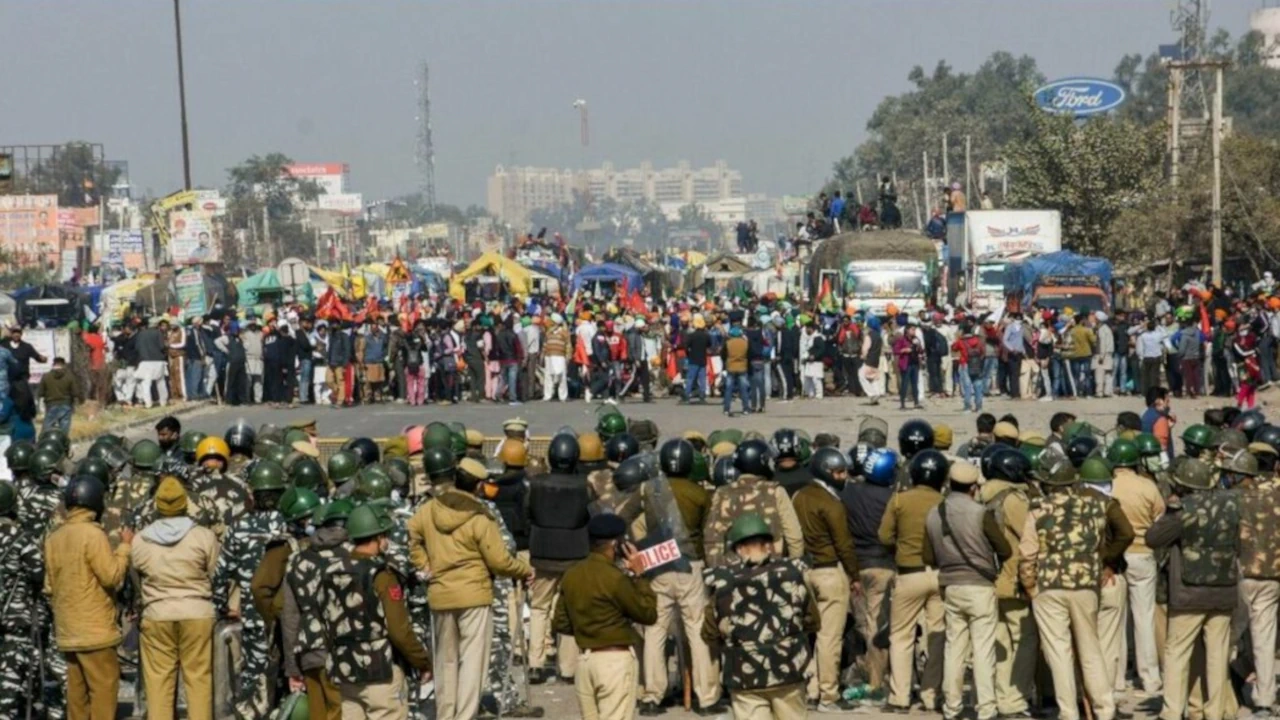Negotiations between protesting farmers and a government delegation have seen some progress after a fourth meeting concluded late last night. The deadlock had escalated into a significant faceoff at the Punjab-Haryana border last week. Union Minister Piyush Goyal announced post-meeting in Chandigarh that the government proposes to buy pulses, maize, and cotton from Punjab farmers at the minimum safety price (MSP) for the next five years.
MSP serves as a safety net for farmers, ensuring protection against falling crop prices. At the meeting, which spread into the early hours, it was revealed that government agencies would enter into a five-year contract for crop procurement with no limit on the buying quantity. The farmers are taking two days to discuss this proposal, with other demands yet to be decided.
Farmer leader Sarwan Singh Pandher expressed that the farmers’ response will be informed by expert opinion and the hope that all their demands will be addressed shortly. The demands include a law on MSP, loan waivers, implementation of the Swaminathan Commission’s recommendations, pension for farmers and farm laborers, and the withdrawal of lawsuits filed during the protests.
The much-publicized ‘Delhi Chalo’ march is on hold but is set to resume on February 21 if the farmers’ full suite of demands is not met. This march witnessed thousands of farmers heading towards Delhi, prepared with rations for months. The farmers are currently encamped at Shambhu and Khanauri, between Punjab and Haryana, where heavy barricades have been erected. Delhi’s borders at Ghazipur, Singhu, and others have been partially sealed, with concrete blocks and nails laid out to prevent entry.
The recent talks in Chandigarh ended without a clear resolution on the MSP link with crop diversification, a proposal intended to address the falling water tables due to excessive paddy cultivation. While the government emphasized the benefits of crop diversification for farmers and the economy, the farm unions have postponed the decision until Monday after detailed discussions. The Centre has been asked to provide a safe passage for protesters should they proceed towards Delhi.
The government’s assurance includes contracts with cooperative societies for the purchase of pulses and maize at MSP and with the Cotton Corporation of India for cotton procurement. Punjab’s Chief Minister Bhagwant Mann, also present at the meeting, noted that the farmers’ decision will be final regarding crop diversification discussions. The third round of talks on February 15 followed two earlier rounds on February 12 and 8, all inconclusive, focusing chiefly on legal MSP guarantees and complete farm loan waivers.
Nearly 20,000 demonstrators are stationed along the borders, held back by Haryana police with tear gas and rubber bullets as tensions remain high.
